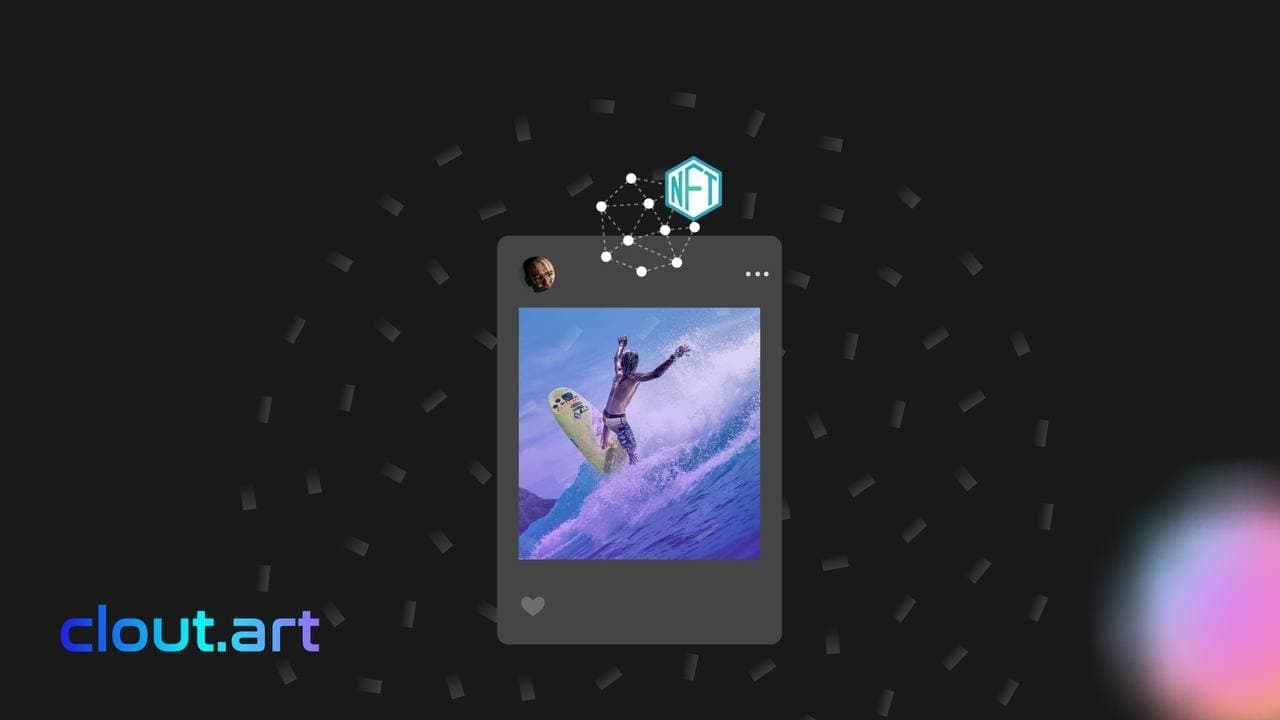“Staking is the new following.” So says Jure Zih, founder of innovative NFT startup, Clout.art, set to launch later in the summer.
This surprising statement deserves some explanation. If Zih is correct, we could see the worlds of social media influencers and NFTs collide in a way that will forever change the influencer landscape.
Clout.art is a platform that enables a content creator to turn a social media post into an NFT. In other words, taking a piece of content from the past, which is freely available on a social media site like Instagram or TikTok, and creating a unique NFT monetised as a saleable asset. The kicker is to make the NFT, they must delete, or burn, the original post.
As Zih explains, “Social media timelines are all about ‘now’. Many content creators have posts that were very popular, but they are buried under the content that came afterwards. With Clout.art, creators can revisit pivotal moments in the history of their digital self and make those moments available to their fans, and collectors, as NFTs.”
Clout.art has developed a proprietary algorithm they call the Clout.art Score, which considers several factors, including the content age, reach, and engagement. It uses this to determine the inherent value of the NFT at the moment of minting. The more clout possessed by the creator, the more valuable the NFT will be at its moment of creation.
So, how does this tie in with Zih’s opening statement that staking is the new following? The answer lies in the challenges faced by all influencers on social media and how blockchain provides an alternate mechanism for creators to connect with their fans directly.
According to Zih, in addition to popular posts soon disappearing from view as new content is added, social media influencers must also contend that they do not own the medium and thus cannot monetize their creativity directly. The solution to this has been third party sponsorships, but this leads to questions of authenticity. As Zih puts it, “How often do you hear an influencer say they don’t like something?”
The Clout.art platform is built around its utility token, PROPS, where creators will be granted PROPS to mint NFTs from their social media posts. But where things get interesting is how fans and collectors can use their PROPS to connect with content creators.
Each content creator will have their unique staking pool, called the Creator pool. PROPS holders can stake their tokens against individual content creators, thus sending a market signal that there is demand for their content. When a creator sells an NFT, the rewards are shared with all the participants in that pool.
“Creators won’t just profit from their audience,” enthuses Zih. “Now they will profit with their audience. This ties in both creators, fans but also collectors as it introduces a whole new idea of social capital and NFTs as the underlying assets for the economic model to work.”
Blockchain technology, and the most popular current use case, NFTs, might well signal a change in how creators monetise their creativity. It will be interesting to see how the social media channels respond in the future as services like Clout.art provide alternative channels for Creators to reach and connect with their audience.
For more information on Clout.art, visit their website.
I am a highly experienced writer and editor in the cryptocurrency field. I have written for numerous publications, including CoinDesk and Bitcoin Magazine. I am also the author of two books on cryptocurrency investing. I am passionate about blockchain technology and its potential to change the world, and I firmly believe that cryptocurrencies are here to stay forever.




